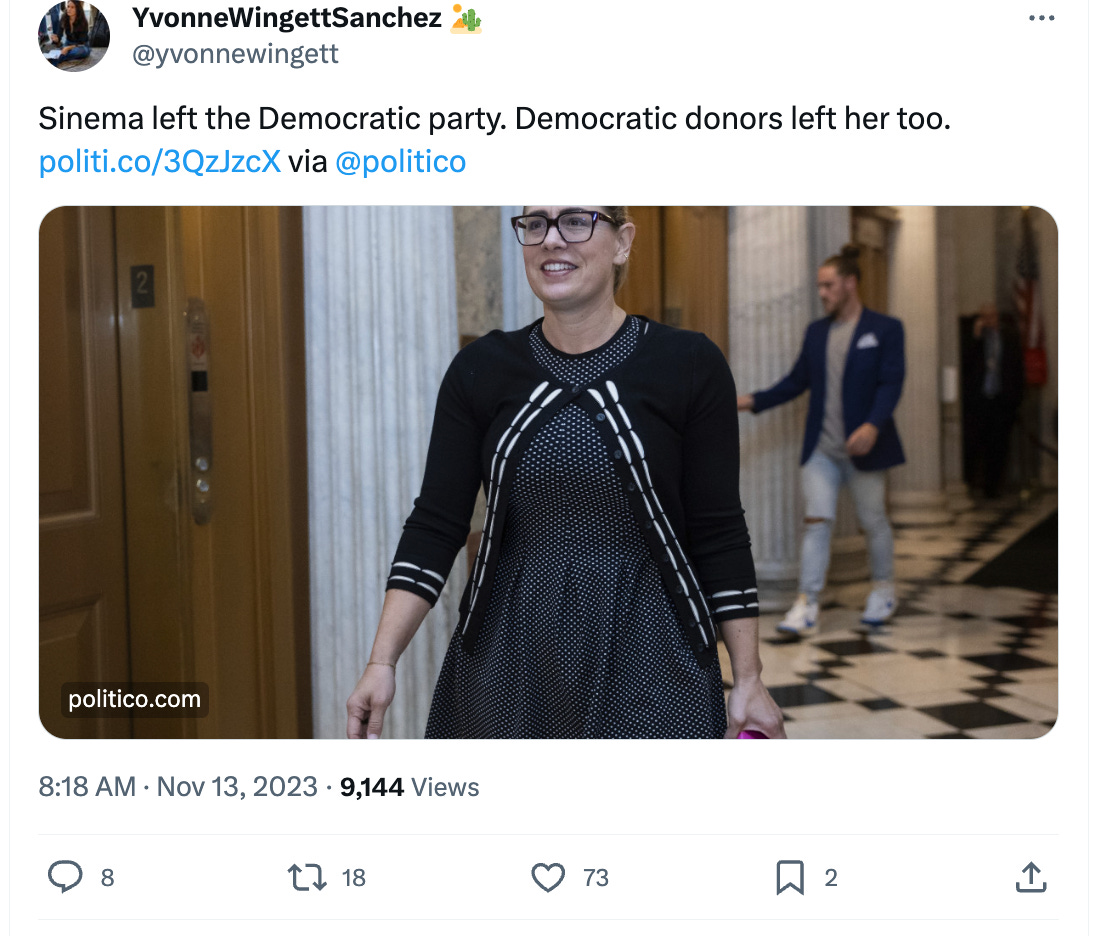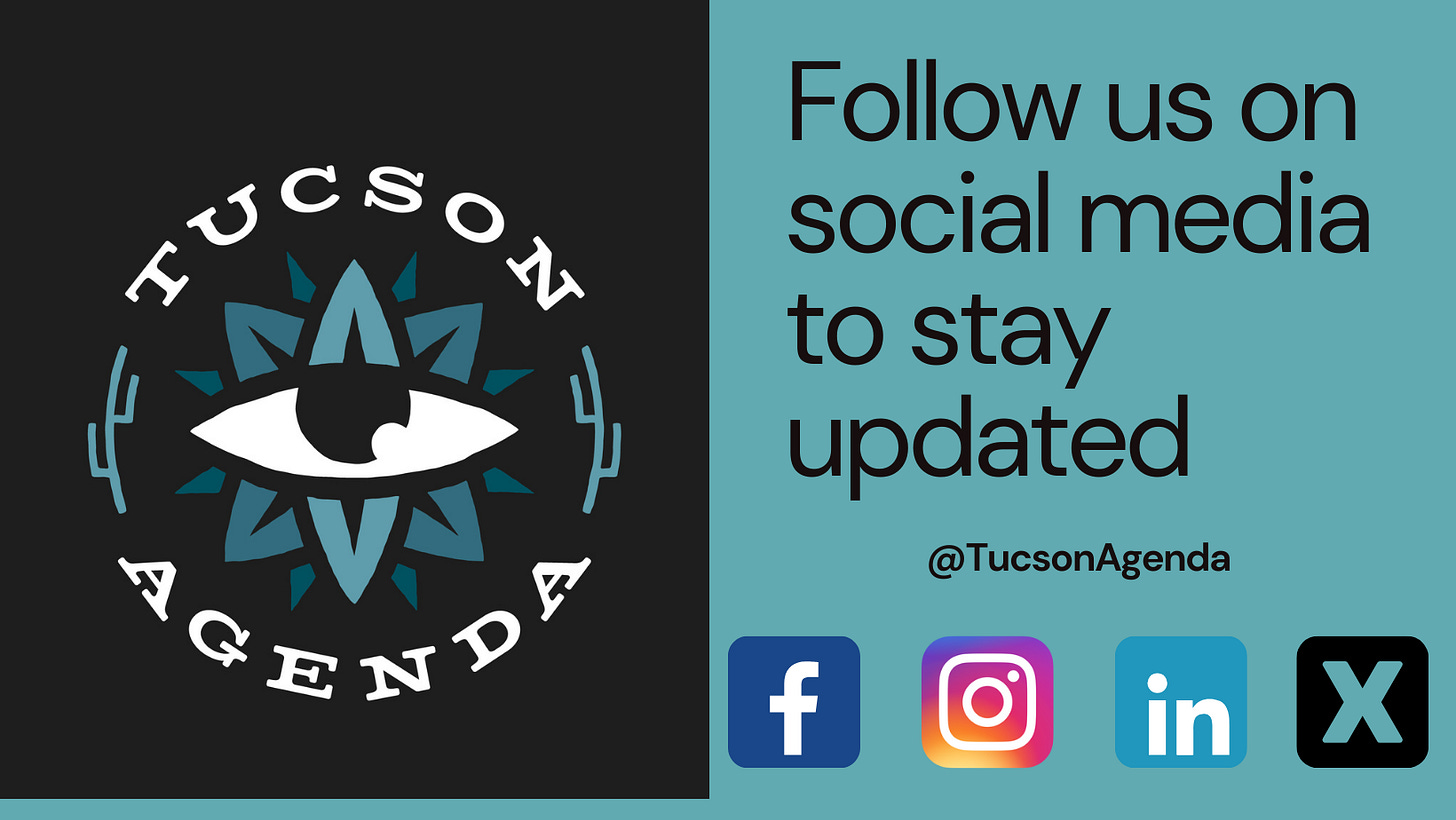The Daily Solution: An easier path to help
Tucson has an overwhelming number of nonprofits … A new collaboration will cross-refer families to the right nonprofits to fit their needs … Bronson is hanging up her hat.
Affordable housing. High-paying jobs. Local reporters. There’s no denying that Tucson — like many other cities — is lacking plenty of vital resources.
But if there’s one resource we don’t have a shortage of, it’s nonprofit organizations that help people in need. And while it’s great that so many local groups want to help, it’s also led to an unintended consequence.
An abundance of resources can make it harder for people to find the right ones to fit their needs, which Caitlin heard a lot about during her time at the Arizona Daily Star.
Through surveys and listening sessions, several people talked about how difficult it was to navigate Tucson’s vast nonprofit world, with one even asking the Star to create and house a searchable and interactive directory of nonprofits.
There are several organizations that do that already, but those directories include hundreds of entries and it’s still unclear if all the local options are included. For a person in crisis, spending hours searching the internet and making calls to find the right kind of help might not be an option. And many people need help in more than one area, but no single nonprofit has the capacity or ability to help with everything.
That’s why one local group has been working to ease that burden through the creation of a collaboration of nonprofits that focus on different ways to support children and their families.
Social Venture Partners Tucson’s 2Gen Nonprofit Collaboration connects families to nonprofits specializing in education, employment, health, finances and more. This collaboration helps make sure that families receive the comprehensive help they need for their children and themselves, in order to stabilize their lives.
The 2Gen approach addresses systemic barriers by recognizing that each family is different and needs personalized support to move out of poverty. It helps families access resources, solve problems and hone existing skills.
It’s a national model rooted in the settlement house movement of the late 19th century, which tried to uplift the working class by providing them with education, helping their families and exposing them to high society. The modern 2Gen model has been widely used across the U.S. for more than 30 years, but it’s still relatively new to Tucson.
SVP launched the 2Gen Nonprofit Collaboration in Tucson in 2021, after hearing from community members that there was a need for more coordinated support. The collaboration started with three nonprofit partners and expanded to five by the spring of 2022. By April of this year, the collaboration had grown to eight nonprofit partners, with SVP ultimately hoping to include up to 12 nonprofits.
The current nonprofit partners include Interfaith Community Services, Make Way for Books, Boys to Men, JobPath, Girl Scouts of Southern Arizona, YWCA Southern Arizona, Parent Aid and Jewish Free Loan. The collaboration allows member nonprofits to cross-refer clients to other participating nonprofits, which ensures the families receive help in as many areas as possible.
Two women who worked with the collaboration talked about its impact during SVP’s partner summit earlier this month, which brought together representatives from the Aspen Institute and participating nonprofits to reflect on their work.
One of the women spent 15 years in the military but said that financial issues when she transitioned to civilian life created a large burden for her and her two children. She struggled with health issues and food insecurity, until she was connected with SVP.
She said that Interfaith Community Services made a huge impact on her and her children’s lives, but not just through financial support.
“They truly care about people,” she said. “Beyond just receiving financial help, showing that you’re a human is huge.”
Solving intergenerational poverty is a massive undertaking, but there are solutions, like 2Gen, that work, said SVP CEO Ciara Garcia. But locally at least, that isn’t reflected in the data. Arizona ranks 39th in the nation for child wellbeing and 30% of children in Pima County live in poverty.
“Should it really be this hard? Should we really have to move mountains in the wealthiest country in the world?” Garcia asked, adding that research has shown that the countries that make the largest investment in their citizens have the least amount of poverty.
While it’s unclear if the federal government will increase its investment in these areas, there is buy-in at the local level through Pima County’s Prosperity Initiative, which has agreed to adopt 2Gen as one of three cross-policy strategies.
The 16 proposed policies in the prosperity initiative will be presented to the board of supervisors later this month, with a vote on their adoption set for next month.
The 2Gen approach works, Garcia said, with 86% of families served by Tucson’s nonprofit collaboration saying they found a true partner in accessing the services they needed. But there’s still plenty of work to be done.
And while we want to see the success of programs reflected in the data, Garcia said it’s important to remember that we’re not actually talking about numbers.
“This isn’t about statistics, it’s about the people behind the statistics,” she said. “People who refuse to accept the cycle of poverty as just the way things are.”
End of an era: Pima County Supervisor Sharon Bronson is stepping down at the end of the month, after nearly 30 years on the board, the Green Valley News reports. Bronson, who represents District 3, wrote in a letter to the board that she’d been considering whether to run in recent months, but was injured last week when she tripped over one of her cats. Bronson fractured three ribs, saying that her recovery would take a few months and that she could not “adequately discharge” her duties. Supervisors will likely discuss the process to replace Bronson for the remainder of her term during their meeting next week.
Changing his tune: University of Arizona President Robert C. Robbins is offering up new reasoning for the school’s recently announced financial crisis, the Arizona Daily Star reports. In a Saturday letter to the campus community, Robbins said that some colleges and units overspent, but in a statement to the Arizona Board of Regents and Faculty Senate meeting earlier this month, Robbins blamed the situation on overspending in athletics and financial aid. Robbins didn’t specify which colleges or units but said more information is to come.
Take two: The updated design for the new 22nd Street bridge addresses many of the concerns previously expressed by bicyclists, walkers and neighbors, who took issue at earlier versions they called unsafe, the Arizona Luminaria’s Teressa Enriquez writes. The new design, presented at a public meeting last Monday, also removes vehicle access to Aviation Highway, which residents say could cause traffic backups that could block access to neighborhoods.
Giving back: This is Tucson’s Elvia Verdugo compiled a list of 15 places where people can donate food, including pet food, during the holiday season and beyond. The list includes options across town, including the UA Campus Pantry, South Tucson’s Casa Maria Soup Kitchen, Youth on their Own and more. Verdugo noted that many local churches and neighborhood centers also offer food pantries and may need donations, but it’s best to call in advance to make sure.
Weighing in: Pima County Attorney Laura Conover signed onto a brief filed with the U.S. Supreme Court, supporting a federal law that prohibits people under domestic violence-related restraining orders from having firearms, the Arizona Republic’s Jimmy Jenkins writes. The Supreme Court heard arguments in U.S. v. Rahimi last week, with a ruling expected by early summer. Conover, a member of the non-partisan Prosecutors Against Gun Violence, said the ability to take away firearms is a valuable tool in domestic violence situations that can provide an additional layer of safety to victims and the community.
Pitch those projects: The City of Tucson’s Housing and Community Development department is accepting proposals from nonprofits and other developers for affordable rental housing projects. These projects can include new construction or rehabilitating or retrofitting existing structures. Applications are due to the City of Tucson/Pima County HOME Consortium on or before Dec. 20. The city is conducting a virtual pre-proposal conference for prospective applicants this morning from 9-10:30 a.m. Advance registration is required.
70: The percentage of adults in Pima County who don’t have a college degree.











